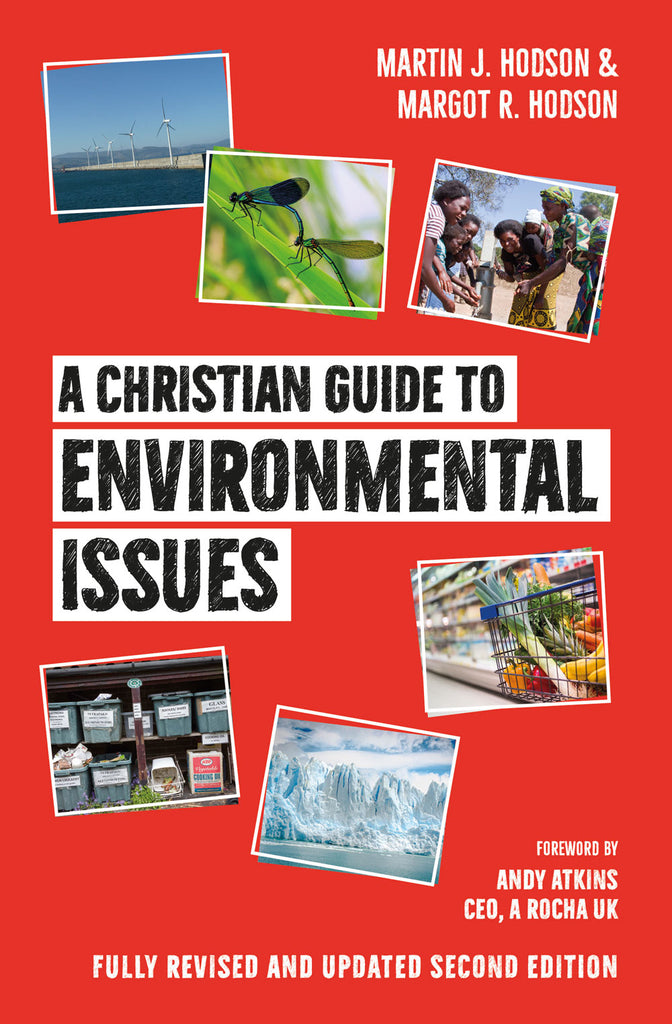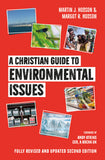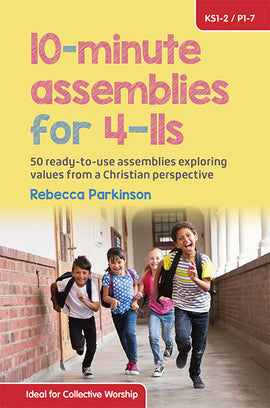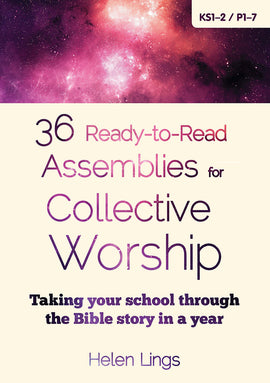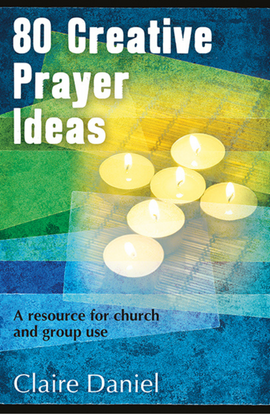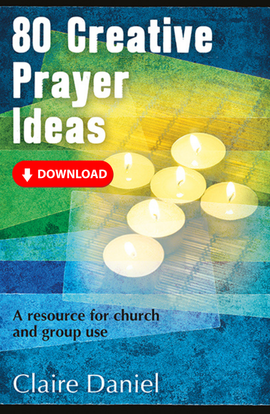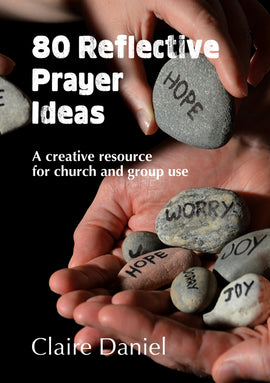A Christian Guide to Environmental Issues
Why and how Christian faith and concern for the environment should go together
Environmental sustainability is a major issue for us all. In this extensively updated edition, Martin and Margot Hodson consider eight of the key current environmental problems, giving the biblical basis for looking after the environment and helping to integrate environmental thinking into the reader’s understanding of Christian faith. This accessible guide includes ethical reflections, Bible studies focusing on a different biblical doctrine for each chapter, and eco-tips to enable practical response. Among the issues covered are climate change, food, biodiversity, and population, together with the relationship between environmental problems and issues relating to world development.
| Title | A Christian Guide to Environmental Issues |
| Author | Martin Hodson and Margot Hodson |
| Description | Environmental sustainability is a major issue for us all. In this extensively updated edition, Martin and Margot Hodson consider eight of the key current environmental problems, giving the biblical basis for looking after the environment and helping to integrate environmental thinking into the reader’s understanding of Christian faith. This accessible guide includes ethical reflections, Bible studies focusing on a different biblical doctrine for each chapter, and eco-tips to enable practical response. Among the issues covered are climate change, food, biodiversity, and population, together with the relationship between environmental problems and issues relating to world development. |
| Details |
|
Environmental sustainability is a major issue for us all. In this extensively updated edition, Martin and Margot Hodson consider eight of the key current environmental problems, giving the biblical basis for looking after the environment and helping to integrate environmental thinking into the reader’s understanding of Christian faith. This accessible guide includes ethical reflections, Bible studies focusing on a different biblical doctrine for each chapter, and eco-tips to enable practical response. Among the issues covered are climate change, food, biodiversity, and population, together with the relationship between environmental problems and issues relating to world development.

Rev. Margot Hodson is Theology and Education Director for the John Ray Initiative (JRI), an organisation connecting Environment, Science, and Christianity. She is also a Vicar in the Oxford Diocese. The Hodsons have published widely together on Christianity and the environment, and have several books including A Christian Guide to Environmental Issues (BRF, second edition).
Dr. Martin Hodson is a plant scientist and environmental biologist and has over 100 publications mostly in international science journals. He teaches at both of the universities in Oxford and is the Principal Tutor for the distance learning course, Christian Rural and Environmental Studies (CRES).
Martin and Margot Hodson’s deep commitment to the critical issues that their timely book addresses shines through each chapter.
Peter Harris, Founder of A Rocha
This book looks straight in the eye of the most serious set of environmental challenges humanity faces. Drawing together in accessible ways scientific evidence, biblical reflection and practical ideas, it will provoke you to better think, act and pray for the renewal of creation.
Rt Revd Graham Usher, Bishop of Norwich
Science and Christian Belief. Review by Robert Sluka
Sluka R. 2022 Review of "Hodson & Hodson - A Christian Guide to Environmental Issues 2nd Edn, BRF", Science & Christian Belief vol.34(2):145-146. Review reprinted with kind permission.
I first read Martin and Margot’s books while in a youth hostel in Tasmania. Not exactly or even close to being a youth at the time, their writing helped to shape my thoughts on how to integrate Christian faith and conservation. The strength of their work is a deep theological reflection rooted both in practice and academic rigour combined with a commitment to and skill at summarizing and communicating the latest peer-review science and conservation policy. This is the second edition of A Christian Guide to Environmental Issues, which they have fully updated and revised to respond hopefully to our current conservation crises.
Many Christians are more environmentally aware and active in recent times. There are now over 4000 Eco churches in the UK, for example. Yet if you were to ask the average person in the pew about the environment, they would likely struggle to articulate how their faith is relevant to it. Margot and Martin argue that the environment is central to the Christian faith, not peripheral to it. This book also provides a helpful correction to the overwhelming focus, when there is one, of the Christian community on one environmental issue – climate change. Martin and Margot show clearly that there are many threats that while often augmented by climate change, are not currently addressed by most agencies, churches, or individuals and which would not be reduced could we solve our climate issues immediately.
This is an excellent resource for those who want to better understand both the science and the theology surrounding environmental issues. The book could be approached as a relatively quick read to gain insight into major environmental topics such as biodiversity, climate change, water, energy, soil, and food. Each chapter starts with helpful stories to contextualise and put a personal flavour to the issues from Spain or Portugal where much of this book was written during a sabbatical, giving a common thread throughout. The science is detailed up with more study, but clear and concise enough for a lay person to understand.
A Biblical reflection follows which provides insights into key passages that apply to the topic. I will also use this as a resource book when called upon to speak on or address topics covered in the book. A focused bibliography of key creation care books is given in the back. Key websites are listed with summaries, indexes of topics and bible verses increase its utility. A short bible study allows the reader to reflect and develop their own thoughts – with bible study leader’s notes for small groups.
Additionally, Martin and Margot produced a series of videos that accompany this book as a series of 10 study sessions or easily cut down to fit a Lent course:
(https://thebigchurchread.co.uk/a-christian-guide-to-environmental- issues-2/).
The chapter on soil serves as a good example of the value and diversity of this book – not the least that there are so few creation care books that even address soil as an issue. The chapter starts with a personal story from Martin reflecting on his teaching on soils in Oxford. This proceeds to a helpful discourse of what soil is, then adds a global perspective on threats such as erosion, compaction and pollution. An outside perspective is written by a colleague along with another personal story from Martin’s and Margot’s sabbatical in Spain. Margot then provides a reflection on the biblical themes of exile and return and of course, the parable of the sower and the soils. A Rocha UK head of Conservation, Andy Lester, comments on their Partner in Action Programme and Margot and Martin reflect on their experience at one of these partners, Hilfield Friary, showing how the topic of soil is being addressed on the ground with respect to creation care.
Each chapter has an eco-tip for the reader to implement – this one focused on gardening and soil as you would expect. A bible study with discussion questions takes readers to Isaiah and Luke and then helpful references are given to pursue deeper knowledge of soils. This chapter caused me to think about the soil in my own garden here in Florida and specifically, how the way I treat it impacts the ecology of this area and my own spiritual life as I interact with it through gardening activities. Each chapter is likewise diverse.
This book is necessarily a summary and thus can’t go into a deep treatment of each topic. The bouncing around of different voices, locations, and switching between faith and science topics might not be palatable for some. The format is set up so that a small group could use it for discussion with or without the accompanying videos. It is a useful resource for church leaders who want to speak on these issues.
This is an important book to continue the hopeful conversation of how we can love God and neighbour (including our non-human neighbours) through caring for God’s world.
Robert Sluka leads A Rocha’s Marine Conservation Programme, working to glorify God through caring for the 71% of the planet that is ocean (www. arocha.org/marine).
Irish Methodist Newsletter. Review by Stephen Skuce
A standing item on our church council agendas is environmental matters. We know it's part of our Christian responsibility, as individuals and as churches, to care for the environment. We know we are stewards and custodians, not the owners. And we know that in most cases we aren’t doing much more than recycling and trying our best. It's unlikely to happen, but if Greta Thunberg or David Attenborough were to sit in on our council meeting, I doubt if they would be impressed.
So, to avoid the avoid the wrath of David and Greta, Martin and Margot Hodson have revised and updated this book to help us better recognise areas of concern and ways in which we can be part of the answer. Ten chapters cover areas such as soil, water, energy, biodiversity, climate change and food, and each chapter concludes with a short Bible study. Therefore, this is an ideal book to use in a home group or church Bible study to help us think through these issues as Christians. And to make it even easier there are supplementary notes at the back for those leading the Bible study, as well as good end notes to each chapter to source the material and point to ways to think even deeper on the issues.
When we think about water we know that we aren’t short of the stuff in Ireland, but are at increasing risk of getting too much rain in concentrated bursts while other parts of the world are experiencing longer periods of drought. Fires in California and Australia bring this home to us, as does the burning tundra above the artic circle. I’m writing this in April and Slieve Donard ‘is on fire’. Rather than a moralising tone, the authors share up to date thinking alongside practical Christian responses around the world and bring us hope that we can be part of the renewing of creation. We have a problem but it's also our opportunity to act, and our World Development and Relief colleagues are in partnership with many groups to assist us such as Dabane Water Workshops in Zimbabwe. This is part but not all of our response. ‘The images of water in the Bible remind us of our dependence on the earth and how deeply we are bound together. We understand our place in creation as one of awesome responsibility to lead wisely. One day, that role will be fulfilled. When we lead a redeemed creation as a redeemed people of God’.
This book is an ideal study guide into the issues, helps us wrestle with Scripture and the key issue of our generation. The Hodsons have also published this year Green Reflections: Biblical Inspiration for Sustainable Living. We are late to recognise our requirement to act. This text will help us and others not be too late, God willing.
Reviewed by Revd Dr Stephen Skuce, District Superintendent, the North Western District
Review by Kate Lemon, One25
The environment and climate change has been one of the central debates for many years. Many of us are seeking hope for the future and joining those who are trying to reduce waste, act more responsibly towards the environments and show they care for the living world.
This 2nd edition combined practical theology with the latest science. it is a useful resource for church leaders and group leaders ( e.g. Sunday schools) it covers
Biodiversity
Climate change
Human population and consumption
Water/ food
Soil
Energy
Each chapter offers a bible study section at the end and often an eco-tip as well as biblical reflection.

